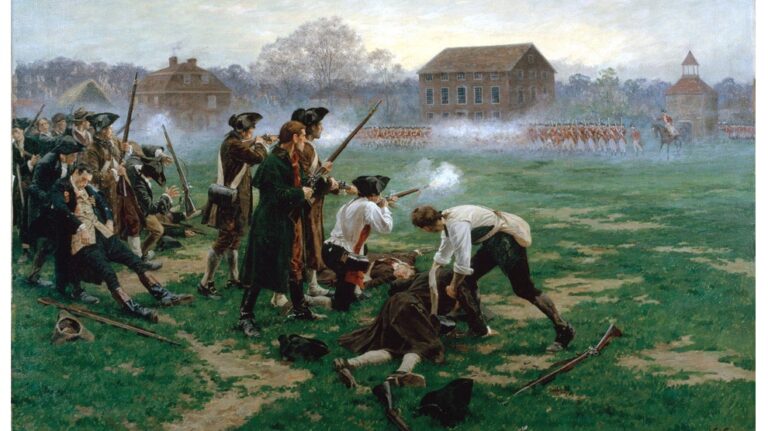‘Only by concrete action can we confront the general decline…’
David Engels
The state of European civilization has always been at the centre of heated debate. In contrast to the optimistic progressive narratives,[1] not one pessimistic position has emerged[2] – while there have been those whose realism has gone beyond traditional theories of “triumph” or “decline.” The German historian and theoretician, Oswald Spengler’s ambitious reflections on the life cycles of civilizations also belong to this latter category. His main thesis is that we must break with the universal view of history—from which the ancient-medieval-new-age schema derives—and, instead, place high cultures at the centre of historical epoch-making. The reason, Spengler argued, is that these cultures produce similar patterns in that they follow successive stages of emergence, flourishing and decline. He distinguished between two main stages: culture, which is the first stage, and civilization, which is the second. Every culture has its own civilization.[3] At the dawn of high culture, a unique world view and attitude (rationality) emerges, which initially takes on an organic—as it were unconscious—form. This is followed by the period of civilization, when everything that was organic becomes increasingly mechanical, . . . the complete unfolding, technically high and quantitatively increasing reproduction of already existing works and values becomes decisive.’ [4] Nevertheless, it is also a closure, with ‘the irrevocable end of civilization, which, driven by inner necessity, comes again and again.’[5]
What Spengler diagnosed as a cycle of dying civilizations has the power of relevance
Spengler was not referring to the decline of the West in his own time, as he predicted that it would only occur in the twenty-first and twenty-second centuries. For those of us who have read his monumental book, what Spengler diagnosed as a cycle of dying civilizations has the power of relevance. But what can the average person do when they experience the decline of every civilization as an inevitable fate, ‘an irrevocable end, which, driven by inner necessity, comes again and again’?[6]
This is exactly the question that David Engels, a talented conservative author and Spengler’s intellectual disciple, seeks to answer in his book. Engels was born in 1979 in Verviers, Belgium. He studied history, economics and philosophy in Aachen from 1997 to 2005. In 2005 he submitted his doctoral thesis on Raban von Haehling’s Das römische Vorzeichenwesen (753-27 BC). Since 2008, he has been the head of the Department of Roman History at the Université Libre de Bruxelles (ULB). Since 2018, he has been on leave from his Brussels chair, having accepted an invitation to become a research professor at the Instytut Zachodni in Poznan. His current research interests include European identity, Polish-Western European relations and Western intellectual history.
In one of his most famous books entitled Auf dem Weg ins Imperium: Die Krise der Europäischen Union und der Untergang der Römischen Republik (originally titled Le Déclin, in English On the Road to Empire: The European Union Crisis and the Downfall of the Roman Republic), the author argues that, using Spengler’s morphological device, a parallel can be drawn between the crisis of the European Union and that of the Roman Republic.[8] In addition to immigration, he identifies and presents eleven other crisis geographies, using historical analogies,[9] which marked the end of ancient civilization. He proposes that the Union should follow the path of the former republic and develop a twenty-first-century principality to avoid its downfall. Such an authoritarian, conservative turn could ensure the survival of European (Faustian) civilization. But it would require abandoning the liberals’ mirage of “humanity” just as the sovereigntists’ concept of the nation state. In the book, he makes recommendations to the elites for the signs of crisis he has identified. In his new book, however, Engels sets out to give advice to ordinary people in the decline of Faustian civilization.
His 2019 book published in Hungarian as Mit tegyünk? (originally Que faire? in French and Was tun? in German) is therefore an integral continuation of the Engelsian oeuvre. This time addressing to the ordinary person, it seeks to provide orientation and an alternative to the growing woke culture and other spiritual crises. The starting point of the book is that there is currently no realistic possibility of reform from above, so the twilight of the West is inevitable.[10] It is, therefore, necessary to create grassroots formations that can serve as an alternative to the decline of institutions. But, Engels suggests, this requires a counter-revolution of lifestyles, including reintegration into the countryside and leaving the big cities, helping local producers, thinking in terms of long-term processes, or even turning away from the mass media.
The starting point of the book is that there is currently no realistic possibility of reform from above, so the twilight of the West is inevitable
The book also proposes a rethinking of mainstream values, rejecting the misidentification of equality and sameness, and the preservation of historically established notions such as “woman” and “man”.[11] This is important because these are the pillars of the traditional family, which needs to be protected more than ever. In addition to private life, change is also needed in the realm of work, because the fulfillment of duty is the key to social cooperation. Another important reform of values that is required is the moderation of tolerance because, Engels argues, the self-abandonment of Western politics under the banner of tolerance is untenable. In Engels’s view, members of other civilizations must give up their former identity if they want to integrate into European communities.[12]
The author also insists that for the everyday defence of European culture, cultivation and transmission of Christian life, or at least of a life based on Christian foundations, is indispensable.[13] Furthermore, language is another important cultural pillar, the cultivation of which is a contribution to the survival of our civilization. Lastly, reading is a means of enriching our personality and nurturing our values. For this reason, Engels does not recommend reading popular cultural literature, but rather books that encourage reflection. It is also necessary to allow ourselves time for reflection and contemplation, to slow down and contemplate the accelerated pace of civilization.[14]
He argues that we can no longer speak of left and right, as the new dividing line is between the defenders of European civilization and its enemies
Engels also suggests keeping a distance from everyday political mud-slinging. He argues that we can no longer speak of left and right, as the new dividing line is between the defenders of European civilization and its enemies. It is precisely for this reason that he proposes a break with mainstream liberal principles and the mounting of passive resistance towards the authorities pursuing such policies.[15] Here, he again rejects the concept of the nation state and essentially moves towards a unified European civilization built from below. To this end, he calls for the re-commitment of European citizens to their own civilization. The main objective he outlines has not changed much from that of his Auf dem Weg ins Imperium, but the way in which it is achieved has. In his view, pursuing the path he proposes will extend the life of Faustian civilization, and the death of a civilization does not mean the death of its inhabitants, so that as much as possible can be passed on to the next civilization.
But is Engels right and is this really the end? Is there really no hope for a conservative European Empire? These questions cannot be answered in the present. What is certain, however, is that ‘only by concrete action can we confront the general decline…’[16]
[1] Georg Wilhelm Friedrich Hegel, Lectures on the Philosophy of World History (Cambridge:Cambridge University Press, 1982).
Francis Fukuyama, The End of History and the Last Man (New York: Free Press, 2006).
[2] Theodore Lessing, Geschichte als Sinngebung des Sinnlosen (Leipzig: Reinicke Verlag, 1995).
Julius Evola, Revolt Against the Modern World (Rochester: Vermont, Inner Traditions, 1995).
[3] Oswald Spengler, A nyugat alkonya I-II.(Noran Libro Kft., 1995), 57.
[4] Barnabás Kurucz, ‘A fausti teodicea vázlata’, Szellem és Tudomány, 1 (2021), 47.
Taylor Downing and Andrew Johnston, ‘The Spitfire Legend’, History Today, 50/9 (2000), 19–25.
[5] Spengler, A nyugat alkonya I-II, 57.
[6] Spengler, A nyugat alkonya I-II, 57.
[8] David Engels, Auf dem Weg ins Imperium: Die Krise der Europäischen Union und der Untergang der Römischen Republik (Berlin: Europa Verlag, 2014).
[9] E.g.: depopulation, disintegration of the traditional family model, strengthening of egotistical individualism, secularisation, abandonment of personal freedom, political indifference, questioning of the role of the state, bourgeois infantilism.
[10] David Engels, Mit tegyünk? (Budapest, MCC Press, 2021), 53-67.
[11] Engels, Mit tegyünk?, 124–131.
[12] Engels, Mit tegyünk?, 150–159.
[13] Engels, Mit tegyünk?, 168–177.
[14] Engels, Mit tegyünk?, 178–182.
[15] Engels, Mit tegyünk?, 190–197.
[16] Engels, Mit tegyünk?, 47.








